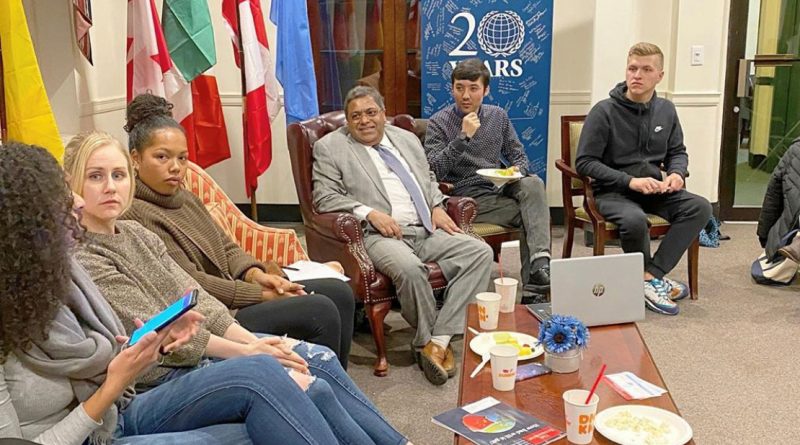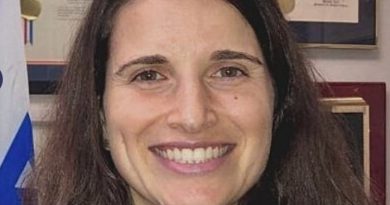Diplomacy Students Discuss COVID-19 Outbreak at ‘DipChat’
Tien Phan
Layout Editor
In early March, the Graduate Diplomacy Council (GDC) hosted their second ‘Dipchat’ event where the focus of the discussion surrounded the ongoing coronavirus outbreak. The GDC wanted to create a common forum to discuss contemporary issues, and the coronavirus remains a timely and unpredictable problem.
Joining the discussion from a faculty and professional perspective was Dr. PL de Silva, the director for the Institute for Strategic Studies and Democracies in Malta and former Under-Secretary-General for Secretary-General Kofi Annan.
At the time of the discussion, Dr. de Silva said that the outbreak was biggest in Italy despite that the initial outbreak started in China. With this, he pointed out how quickly the disease can spread without precautions. Eventually, this spread reached the Middle East, Europe, and North America.
Akhror Khatamov, a United Nations Youth Representative and graduate student at the School of Diplomacy, noted that while 80,000 people were infected in the Chinese province of Wuhan initially, that number is almost triple now.
Although countries are taking serious measures to tackle the disease, containing the spread remains difficult because of the airborne nature of the virus. The situations in Iran, Italy, and South Korea worsen every day as the number of cases spikes, although the death rate in those countries is lower than China’s.
Some participants of the DipChat noted the positive side of the epidemic, As this could be an opportunity for people across the globe to create better hygiene habits. Given the example of what sparked the outbreak in Wuhan, China’s open-air meat markets with exotic food consumption, Diplomacy students thought that other countries can use this example to create better incentives to have cleaner products.
As for the reason the containment of the disease has not been effective, Dr. de Silva noted that it is not because of the incapability of health institutions to treat this disease, but rather because of the inefficiency stemming from a need for institutions to treat many patients at the same time.
Patients need constant care from doctors and nurses in the span of two weeks, at the minimum, so if the number of patients exceeds the number of healthcare professionals, an outbreak is inevitable. In other words, if there is not enough ICU specialized care, so grouping people in one place might even be counterproductive as the risk of contamination increases.
Currently, the WHO has not declared COVID-19 outbreak a pandemic to prevent panic. Dr. de Silva said, “The greatest fear is fear itself” quoting a famous saying that emphasizes fear will not help the situation. When people are clamoring for masks and other safety equipment, fear would create more chaos due to price hikes or misunderstandings in big crowds that try to buy these products.
In the discussion of fear, many students raised their concern about reports of racist abuses against some Asian communities because the virus was sparked in China. Many people believe that because the disease started in China, the recent spread has been associated with this population. Unfortunately, the tendency to group all Asians into one box becomes apparent.
Christina Mojica, a Digital Representative at the United Nations and a graduate student at the School of Diplomacy, asserted that misinformation could bring more setbacks in tackling coronavirus effectively. While misinformation can create negative perceptions about a different population, not knowing who to trust from healthcare professionals is equally problematic.



